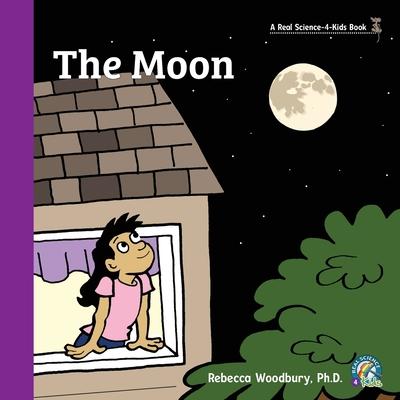The Moon is spherical and much smaller than Earth. It is made of rocks and minerals, like Earth, but has very little air and no liquid water but some ice. The Moon doesn't make its own light but rather reflects light from the Sun, and it orbits the Earth, completing one orbit every month. The Moon looks different from day to day as it moves in its orbit around the Sun. It can look completely round, half-round, or crescent-shaped. The light and dark areas that can be seen on the Moon's surface include craters and lava flows from volcanoes. Craters can form around the opening of a volcano or when another object in space hits the Moon. The Moon and Earth both have gravity. Gravity is the force that keeps the Moon in its orbit around Earth, and the Moon's gravity causes ocean tides.
Pronunciation guide. 24 pages filled with engaging, colorful illustrations. Reading Level 1-3, Interest Level 2-5, Word count 288, Lexile measure 530L.
